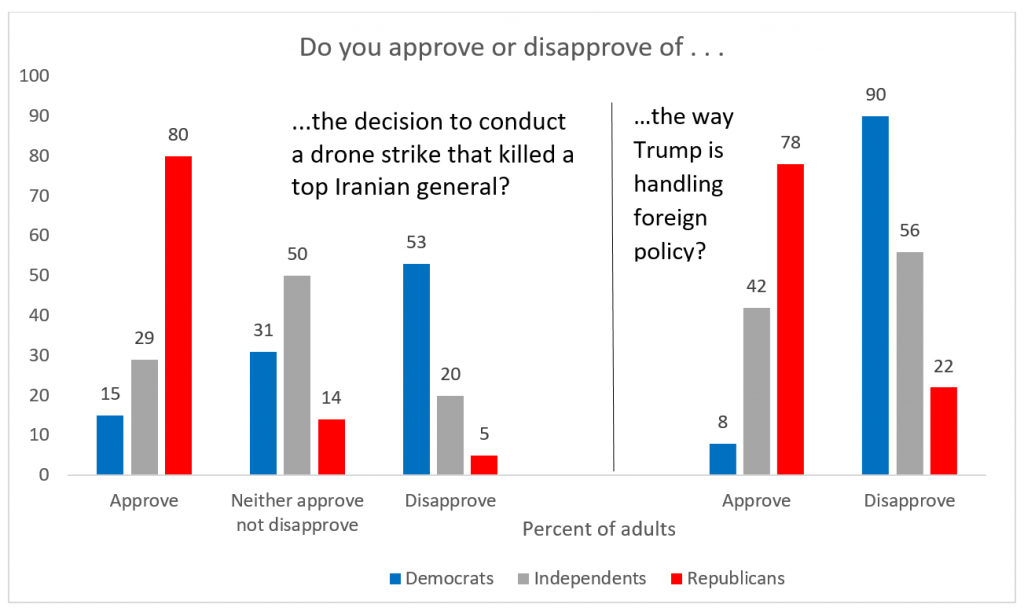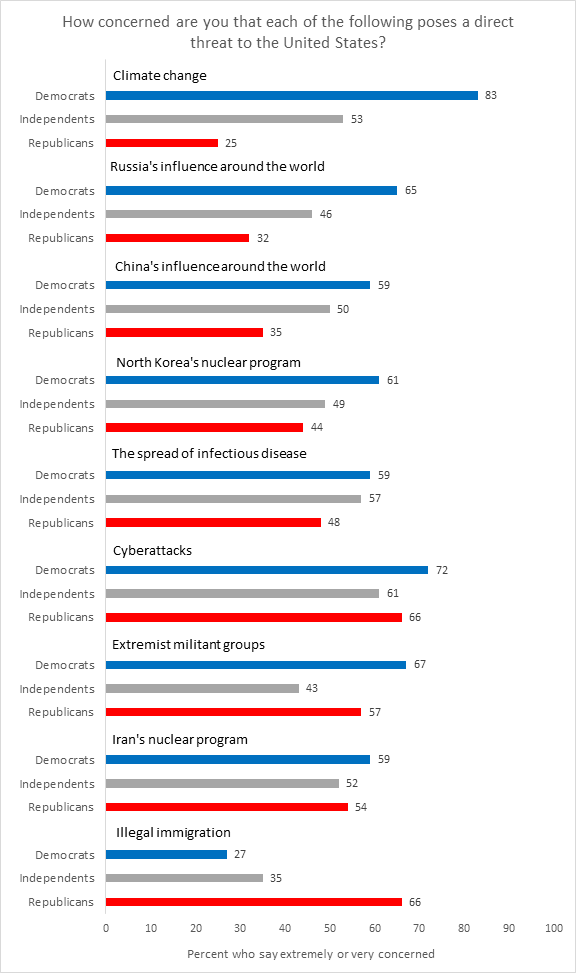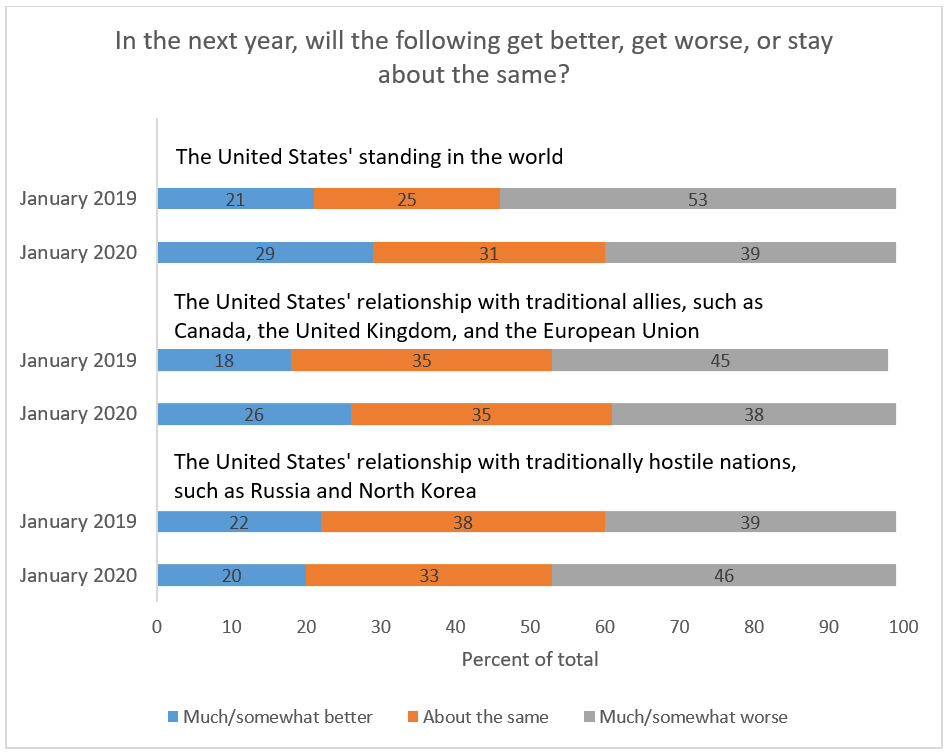
The tensions between the United States and Iran intensified after the American drone strike in Baghdad on January 3, 2020 that killed Revolutionary Guard General Qassem Soleimani. Forty-one percent of Americans approve of the decision to conduct the drone strike, 30% disapprove, and 28% have no opinion either way. The public is increasingly uneasy about Iran’s nuclear capabilities. Fifty-six percent are extremely or very concerned about the nuclear program of Iran, up from 48% in January 2019.
While most Republicans and Democrats are concerned about Iran’s nuclear program, attitudes toward the strike, and President Trump’s handling of foreign policy in general, divide along party lines. Republicans strongly approve of the U.S.-ordered drone strike, while Democrats are more negative. Overall, 39% of Americans approve of how President Trump is handling foreign policy, and 59% disapprove.

Questions: Do you approve, disapprove, or neither approve nor disapprove of the United States’ decision to conduct a drone strike that killed a top general in Iran? / Overall, do you approve or disapprove of the way Donald Trump is handling foreign policy?
Source: AP-NORC poll conducted January 16-21, 2020 with 1,353 adults nationwide.
Most Americans are concerned about the threat of cyberattacks (68%) and extremists (59%). A majority of both Republicans and Democrats are also concerned about the danger to the United States posed by Iran’s nuclear program. Republicans are particularly worried about the threat of illegal immigration, while Democrats are more anxious about climate change, Russian and Chinese influence globally, North Korea’s nuclear program, and disease.

Question: How personally concerned are you that each of the following poses a direct threat to the United States?
Source: AP-NORC poll conducted January 16-21, 2020 with 1,353 adults.
Over the past year, Americans have become more pessimistic about the country’s relationships with hostile nations such as North Korea and Russia. Last January, 39% thought U.S. relationships with such countries would deteriorate over the next year. In the latest poll, 46% expect those relationships to worsen.
On the other hand, expectations about relations with allies or the United States’ overall standing in the world have improved. Twenty-six percent say connections with traditional friends, such as Canada, the U.K. and the E.U. will get better over the next year, up from 18% last year. Similarly, last year 21% said the country’s standing in the world would improve; now 29% expect the international reputation of the United States will get better during 2020.

Question: In the next year, do you think each of the following will get better, get worse, or stay about the same?
Sources: AP-NORC polls conducted January 16-20, 2019 with 1,062 adults and January 16-21, 2020 with 1,353 adults.
The nationwide poll was conducted January 16-21, 2020, using the AmeriSpeak® Panel, the probability-based panel of NORC at the University of Chicago. Online and telephone interviews using landlines and cell phones were conducted with 1,353 adults. The margin of sampling error is plus or minus 3.6 percentage points.



